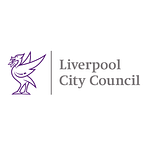World Mental Health Day: My battle with anorexia
Earlier this year, Liverpool City Council’s Director of Adult Services Martin Farran shared his personal mental health story on how his son Joey’s eating disorder affected him and his family. For World Mental Health Day, we caught up with Martin’s son Joey, to hear his side of things.
“I’ve spent a long time trying to remember why I developed an eating disorder — and when it turned from consciously watching what I ate to controlling my every decision.
However, there is no clear answer.
Anorexia crept up on me, building its strength slowly, taking over my life, becoming part of me as my enemy and best friend all-in-one.
I hated my body, so body image was certainly a factor, but not the only one. I dreaded my physical appearance and wanted to do something about it.
I started to eat less and less. I became extremely thin and constantly suffered from the cold, yet refused to wear warm clothes. I tortured myself over it. It got to the point where it was unbearable.
No-one in my family had any idea what was wrong but everyone knew something wasn’t right, as my bodyweight was far too low.
Eventually my mum and dad made a hospital appointment about my circulation — which changed everything.
My body was becoming weaker and weaker to the point where my heart rate was that low it could have stopped at any moment. I was admitted right there and then to intensive care where I spent six weeks bedbound to increase my weight and improve my physical condition. At age 13, I was formally diagnosed with anorexia nervosa.
After my time in hospital, all I wanted to do was to go home, but I wasn’t allowed. I lived in a residential mental health unit Monday to Friday and went home at the weekends.
I hated it and it didn’t help improve my psychological condition as the staff were inexperienced and had no idea what an eating disorder was. While at home, it was a challenge for my parents as I didn’t want to eat sufficiently, and meals became a constant battle. I had a voice in my head telling me not to consume anything and to rebel.
After six weeks, I was discharged from the unit, returned home and started seeing a psychologist and consultant psychiatrist.
Meanwhile, my mum and dad had the constant challenge of making sure I ate, as well as dealing with the behaviour traits the illness laid on me. I wasn’t allowed to do any exercise, which for a sporty person, was very frustrating and felt like torture.
“It destroyed relationships”
Eating disorders are clever and devious. They gradually take more and more control over the decisions you make, and the more you let the eating disorder control you, the stronger it becomes and the weaker you are in fending off irrational decisions.
Eating disorders take no prisoners and in our family it destroyed our relationships and took centre stage. It made it difficult to do anything considered ‘normal’ family life.
Minor changes in plans or routine caused me significant distress. I had severe breakdowns and developed obsessive and compulsive behaviour. Everything — and anything — was a battle — even if it was minor, and not to do with food. I was anxious all the time, resulting in constant stomach-ache.
There were many times when I felt I couldn’t cope anymore. Especially when, after trying to get better for a few years, I was making minimal progress. I wanted to give up and relied on constant support from my parents to get by. For me, my family were my lifeline and main support and I would not be here today without them.
“There is light at the end of the tunnel”
I spent a long time wishing I could just be ‘cured’ as I couldn’t see a life where I wouldn’t feel the way I was. I wished other people could do if for me, but the truth is they couldn’t — although they can be there for you when you’re struggling to keep you on track. I had to understand there is no quick fix, but things can improve and there is a life worth living without an eating disorder hanging over me.
We started going to family therapy sessions and this really helped everyone understand the illness and how it had affected the family dynamic. It shifted the focus from me and enabled us to stand in one another’s shoes.
However, the harsh reality is that the only person who can make you better is you.
Yes, you can get all the support and therapies in the world, but if you don’t want to get better, it’s not going to happen.
After years suffering with the illness going up and down I started to achieve minor milestones. I started to believe there was light at the end of the tunnel. I started to recover.
Ten years on, I am stronger, more emotionally aware and have a good understanding of people, myself and mental health in general, which will help me for the rest of my life.
And even though having anorexia — or any mental health disorder — is never a good thing, I’ve decided to take the positives from a bad period in my life.
If you had said to me back then, that I would graduate from university with a first class degree, be happy, about to start a new job and looking forward to life, I would have said not a chance.
I hope by sharing my story, it helps people facing a similar battle.”
#WMHD2019
Further help and advice
Supporting someone with an eating disorder
NHS advice on anorexia
Beat — The UK’s eating disorders charity
Eating disorders — Mental Health Foundation
Samaritans- call 116 123 (open 24/7).
PAPYRUS (0800 068 41 41) — prevention of young suicide.
Chasing the Stigma — mental health charity.
